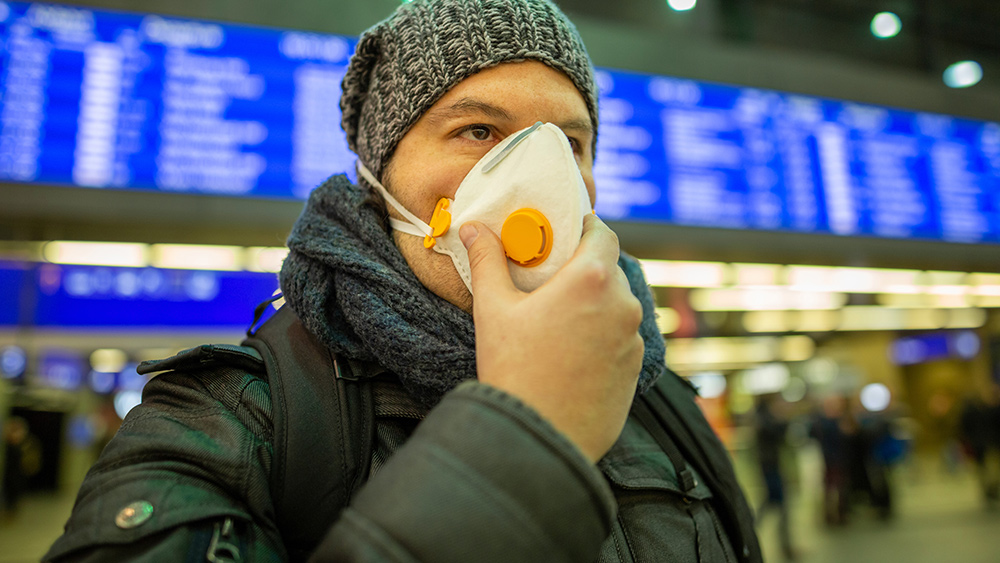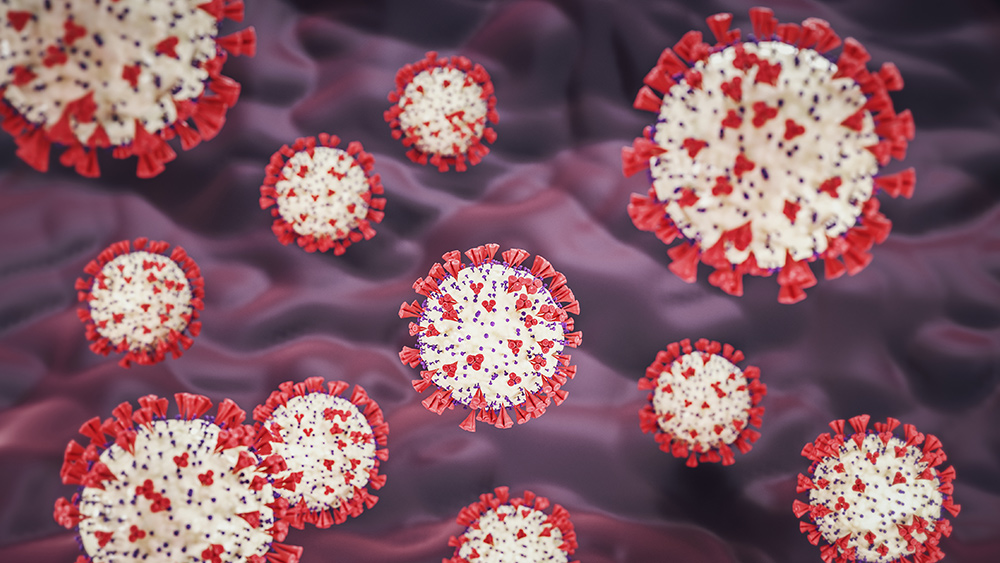Study proves that mass gatherings are breeding grounds for respiratory illnesses like COVID-19
03/28/2020 / By Franz Walker

As part of the efforts to slow down the spread of the coronavirus, a number of large events and gatherings has been canceled. Now, a new study shows just how important this step is in the battle to stop the global pandemic.
Eighty percent of travelers who sought medical help after returning home from a public event were afflicted with respiratory illnesses, reported the study, which appeared in the journal Travel Medicine and Infectious Disease. It also revealed that a good portion of their diagnoses turned out to be either influenza or pneumonia.
The researchers conducted the study by looking at data from people who had traveled to various large events all over the world between 2015 and 2019 — long before the coronavirus pandemic began. Aside from looking at the types of illnesses these travelers had caught, the researchers also looked at the kinds of events these people had attended.
International events are breeding grounds for respiratory illness
Using data gathered by the International Society of Travel Medicine’s GeoSentinel network, the researchers identified 266 people who had traveled to 28 different countries between August 2015 and April 2019.
Of the nearly 300 selected cases, 236 were diagnosed with a respiratory disease, 26 percent of which was influenza and 20 percent was pneumonia. Next to respiratory problems, gastrointestinal illnesses came in second but represented only 4.5 percent of the diagnoses. Most of the travelers, 63 percent to be exact, had visited a healthcare provider before they went abroad.
The researchers also noted that the majority of the ill travelers (over 82 percent) attended religious mass gatherings, while the rest went to sporting events, cultural or entertainment events, or conferences.
Umrah and Hajj, both of which are pilgrimages to some of Islam’s holiest sites, were the two most attended religious mass gatherings. The researchers found that 64 percent of the travelers who attended either event and got ill ended up requiring hospitalization. One death was associated with this.
The World Scout Jamboree was another mass gathering that resulted in many people becoming ill. The 23rd iteration of the event, which was held from July to August of 2015, was responsible for 6.5 percent of all the sick traveler cases included in the study.
In contrast, the 2016 Summer Olympics was responsible for only nine cases. The researchers believe that the travelers had caught their illnesses while they were traveling, and not while attending these events.
They also said that their data highlights the importance of consulting with a healthcare professional before traveling to public events. Getting a check-up before you leave can help stop you from spreading an infectious disease you may have contracted without your knowledge, especially if you’re not showing any symptoms.
Mass gatherings suspended around the world
Even before the study was published, mass gatherings and sporting events around the world have already been suspended. The Kingdom of Saudi Arabia suspended the year-round Umrah pilgrimage earlier this month. The umrah — which can be undertaken at any time of the year unlike the Hajj — draws millions of pilgrims to Saudi Arabia each year. In addition to this, the kingdom has also barred visitors from entering the Prophet’s mosque in Medina.
Major sporting events and leagues around the globe have also followed suit. Some, like the NBA, NHL, NASCAR and Formula 1, have suspended the remainder of their seasons. Most notably, the International Olympic Committee (IOC) has decided to delay the 2020 Summer Olympics in Tokyo by a year. However, some massive events, such as the WWE’s WrestleMania, are still set to take place, but will happen without crowds to ensure public safety.
People are still going to mass gatherings
Despite the data showing that mass gatherings help spread the coronavirus, not everyone is avoiding them. Just last week, thousands of students ignored public health warnings to go on their annual spring break pilgrimages to beaches in Miami.
Now, as Florida experiences a surge in coronavirus cases, many spring break revelers are now expressing regret for their actions, as they either worry about being asymptomatic carriers or have actually come down with the disease.
Sources include:
Tagged Under: coronavirus, covid-19, germs, infections, infectious diseases, influenza, mass gatherings, massive events, outbreak, pandemic, pilgrimages, Pneumonia, religious gatherings, research, respiratory diseases, spring break, superbugs, travel
RECENT NEWS & ARTICLES
COPYRIGHT © 2017 RESEARCH NEWS



















